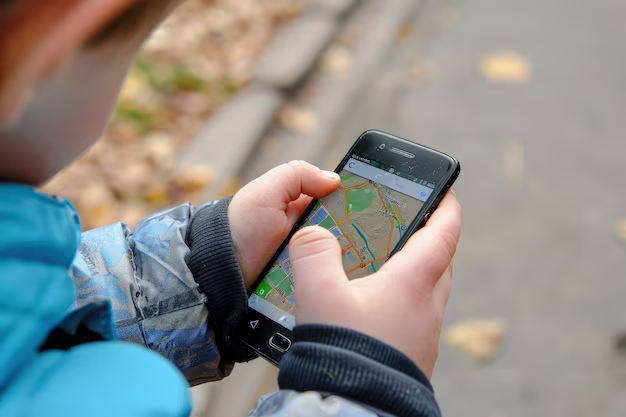Simplifying the Conversion: From Kilometers to Miles
Are you a curious learner or perhaps planning a road trip and stumbled upon the confusing task of converting kilometers to miles? Don’t worry; you’re not alone, and it’s not as complex as it seems! Understanding how to transform kilometers into miles can be incredibly useful, whether you're traveling, studying, or just curious about distances in different parts of the world. Let's dive into this comprehensive guide that’ll make you a conversion pro in no time! 🚗🌍
Kilometer to Mile Conversion: The Basics
Understanding the fundamental conversion metric is essential. The formula is simple:
1 kilometer = 0.621371 miles.
This is the key to opening up the world of distance conversions. Armed with this knowledge, you can start converting kilometers to miles with ease. Keep this factor in mind, and you're already halfway there!
Why Convert Kilometers to Miles?
You might be wondering why you’d ever need to convert kilometers to miles. Here are a few contexts where this conversion proves invaluable:
- Travel: Planning a trip to a country that uses the metric system? Knowing how to convert distances can help you plan your trips effectively.
- Fitness Goals: Many fitness devices use kilometers. If you're more comfortable tracking miles, this conversion is handy.
- Educational Purposes: Whether in school or pursuing personal learning goals, understanding different measurement systems can expand your knowledge base.
Practical Methods to Convert Km to Miles
While the basic conversion factor is simple, there are various practical methods to make the process even easier.
Manual Calculation
To convert kilometers to miles, multiply the number of kilometers by 0.621371. Let’s break it down with an example:
If you have 50 kilometers to convert:
- Calculation: 50 km * 0.621371 = 31.0686 miles
This method is straightforward and helps develop a nuanced understanding of the conversion process.
Online Calculators
The internet offers a wealth of online calculators designed to convert various units. These tools are swift and remove the risk of manual calculation errors. Type "kilometers to miles converter" into your search engine, and you'll have options at your fingertips.
Conversion Apps
For those on the go, mobile apps provide the convenience of conversion at your fingertips. Apps can convert a wide range of units, and many operate offline, meaning you can use them wherever you are.
Detailed Examples of Conversion
Common Distances
Here’s a table of common kilometers to miles conversions to get you started:
| Kilometers | Miles |
|---|---|
| 1 km | 0.621 miles |
| 5 km | 3.107 miles |
| 10 km | 6.214 miles |
| 21 km | 13.049 miles (approx. Half Marathon) |
| 42 km | 26.097 miles (approx. Marathon) |
Feel free to use this table as a quick reference for everyday needs! 🌟
Beyond the Basics: Understanding the Metric and Imperial Systems
The Metric System
The metric system is widely used around the world, particularly in scientific and educational contexts. It’s based on powers of ten, making calculations straightforward.
The Imperial System
Predominantly used in the United States, Liberia, and Myanmar, the imperial system includes measurements like miles, yards, feet, and inches. Understanding both systems enhances cross-cultural communication and comprehension.
Historical Context
Hey history buffs, here’s a nugget for you! The metric system was introduced in France during the late 18th century, while the imperial system has roots dating back to ancient Roman times. Fascinating, isn’t it?
Tips for Seamless Conversion
Converting kilometers to miles doesn’t have to be a chore. Here are some tips to make the process smooth and intuitive:
- Memorize Key Conversions: Familiarize yourself with the conversion factor (1 km = 0.621371 miles) and common distances to speed up mental calculations.
- Use Visual Aids: Create a small conversion chart and keep it in places you frequent, like your workspace or on your mobile device. 📱
- Practice: Like any skill, practice improves your speed and accuracy. Try converting distances regularly to stay sharp.
Challenges and Pitfalls
Precision vs. Practicality
While precision can be crucial in certain fields, in most daily scenarios, rounding the conversion factor to 0.62 suffices. This approach simplifies math without significantly impacting the accuracy of the conversion.
Context Matters
Remember, the degree of precision needed varies with context. Road trips and running routes can tolerate small differences, while scientific applications may require more exact figures.
Embrace the Journey of Learning
Understanding how to convert kilometers to miles opens up new avenues for exploration and learning, empowering you to tackle real-world problems with confidence. Whether you're measuring distances for travel, fitness, or educational purposes, these skills will serve you well throughout life's journeys.
Quick Recap: 🚀
- Formula: 1 km = 0.621371 miles.
- Methods: Use manual calculations, online calculators, or apps for ease.
- Understand systems: Both metric and imperial.
- Memorize key conversions and practice regularly.
With this knowledge in your toolkit, you’re ready to tackle any distance conversion challenge that comes your way. So go ahead, convert with confidence, and explore the world of measurements with newfound ease! ✈️🌐

Related Topics
- How Can I Transfer Data From One Laptop To Another
- How Can I Transfer Domain To Godaddy
- How Can I Transfer My Calls To Another Phone
- How Can I Transfer Pdf To Word
- How Can We Transfer Data From One Laptop To Another
- How Can You Transfer Data From One Phone To Another
- How Can You Transfer Emails From One Account To Another
- How Can You Transfer Vhs Tapes To Dvd
- How Do I Transfer a Prescription From Walgreens To Cvs
- How Do I Transfer Data From Ipad To Ipad
